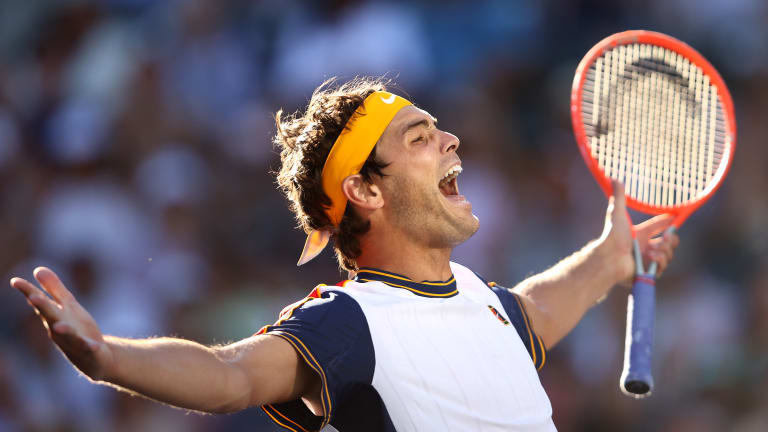What are you more pleased about: your game or mentality?
FRITZ: They work hand in hand. The changes in mentality made a big difference in my game. I trusted my shots. I’m expecting big things in 2022 because I feel the way I am playing right now is levels above before.
You burst onto the tour in a big way, making the final in Memphis in 2016 in just your third tour event at age 19. Did that create unexpected pressure and expectations?
FRITZ: I was ready for pressure and expectations. I always knew how it is, how it was going to be—all about being American (at a time when the U.S. was having trouble producing top players), and who was going to be the next No. 1, or whatever. It was more about the pressure and expectations I put on myself— and I think, over time, that caused me to get away from the style I should play. It caused me to play safer, to be more passive. I was just too scared. I was scared to lose, and when you’re scared to lose then you just play . . . not the way I want to play. I learned you just have to go after, it, that’s what I had to keep telling myself. If you’re playing to win you can’t be scared to lose.
That’s the biggest thing I’ve been thinking about. And I found that I’m happier losing if I took my chances and the ball just wasn’t going in, rather than thinking I lost because I wasn’t taking chances—I was hoping the other guy would lose.
You’re different from a lot of other players with "tennis families." Your mother, Kathy May, is a former Top 10 WTA player, and your dad Guy also played professionally. Yet they have remained very much in the background.
FRITZ: My mom kind of took a step back, but she’s gone to tournaments with me and it’s worked out great. She helped me make a lot of important decisions, especially early on because she’d been through it herself. She’s filled in sometimes when I want someone there, and I’ve done well with her traveling with me. But she’s there for the practices, she’s there for the matches— otherwise she kind of leaves me to do my own thing. My dad was much more involved, with me all the way through juniors, and then at a point I just thought it was time to move on and find someone who . . . it’s just tough when it’s a parent-coach relationship. I needed someone I could listen to more easily, have an easier time talking to, like about tennis stuff. It was just a weird dynamic.
You’ve had a lot of life experience for a 24-year-old, including marriage, parenthood, early fame. Has it been an asset or detriment to your development?
FRITZ: It forced me to grow up quicker, made me more mature and better at managing my time. I’ve gotten pretty good at juggling a lot of things going on. The upside has been bigger than the distractions and stuff of the downside. You matured quickly, but you’re still an avid gamer. What’s your current favorite? I’ve been playing a lot of Apex Legends but I haven't played much the last couple of weeks. I've been so busy playing matches and stuff. But I’m looking forward to having a little time to catch up before I start offseason training at home in L.A.
